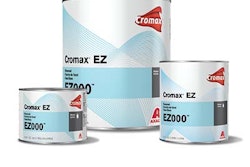
Toronto, Ontario – July 10, 2018 — In this week’s Tuesday Ticker, BofC has a tough interest rate decision, AutoCanada begins shakeup and much, much more.
Stephen Poloz, governor of the Bank of Canada, has a tough decision to make on interest rates this week. Investors hope Poloz will go ahead and raise rates. Interest rates have been abnormally low for years now and that’s hurting investors who are suffering from low returns on bond portfolios. But at the same time, crude oil prices are high and a global trade war threatens to crimp the global economy. That makes the case for holding the line on rates (in a bid to give the economy room to grow) a stronger one. It’s going to be a tough decision for Poloz this week. On one hand the economy seems fairly healthy right now. The unemployment rate is low, but the effects of the new tariffs on globally traded goods have yet to settle in. Oil prices could also spike higher and the economy may be set to weaken substantially in the weeks and months to come.
As it is, the price of a barrel of crude oil is already over US $70. That’s translating into high gas prices at the pump. If the price goes much higher consumer spending could be expected to collapse as it did in 2008 when the price spiked to US $150 a barrel.
This past Friday energy analysts at investment bank Sanford C. Bernstein & Co suggested that such a price is not out of the question today. According to the report, a supply shortfall is going to hit the market over the year ahead. Oil companies cut back investments in new production when prices were low as a way of maintaining profits.The cutbacks in new exploration and development means there is not enough new production scheduled to come online over the next couple years. This is happening at a time when demand for crude oil is higher than ever. The recent “chronic under investment” is setting the stage for the next super-cycle that could see oil prices soar to $150 a barrel according to the Sanford C. Bernstein analysts. Others think coming price spikes could even pass the record price of $150 a barrel set in 2008. Iran is now threatening to shut down the Strait of Hormuz, where a third of crude oil shipments pass through a narrow channel leading from the Persian Gulf. Iran threatened to use its fast attack boats to shut down that shipping channel in reaction to pressure from the United States to get crude oil buyers to reduce their imports of Iranian crude to zero. One analyst suggests that such a shutdown would send crude oil prices to as high as USD $250 a barrel. Such a price would trash the global consumer economy.
There are a couple of other worrying stories from the crude oil world. Production in Venezuela continues to collapse. There are rumors that an attempted coup in Saudi Arabia saw the Crown Prince of that country wounded in an attack carried out on one of the royal palaces. The Prince has been carrying out a controversial reform program in the kingdom. The program is running into opposition that is sewing chaos among the leadership of one of the world’s largest crude producers. It is impossible to say what way oil prices will go. But this week saw analysts begin to contemplate triple digit prices again for the first time in a decade. Interesting times.
Uni-Select
A Canadian stock analyst wondered last week whether Uni-Select would continue to be considered a “dividend aristocrat,” that is, a stock that would be preferred by investors who seek out companies that pay out dividends from profits. Investors like companies that have a track record of continually increasing the dividend. Increasing the amount paid to shareholders in cash generated out of real sales, is, arguably, the best way to judge of a company is doing well. A steady dividend increase is a sign of a solid business that is doing well. Uni-Select seems to be developing such a reputation among investors. It has been increasing its dividend regularly over the last couple years. Until this past May. This spring the company announced it would keep its dividend at the level it was at. The decision to not increase the dividend had the stock analyst wondering if this move indicated a “change in strategy” at Uni-Select. Companies may choose to temper its dividend, or even cut it, to keep more money inside a company. This might be a way of managing through a downturn or a way of raising cash to make acquisitions. But companies are more likely to borrow money than cut the dividend to make acquisitions, as dividend payments are considered sacrosanct by long-term investors.
Sherwin-Williams
Investment bank Credit Suisse Group set a target price of USD $457.00 on Sherwin-Williams stock in a research note released last week. The brokerage currently has a buy rating on the stock. Shares in Sherwin-Williams are currently trading about USD $414.00.
Auto Tariffs
The predictions about what would follow on the threat by Trump to apply tariffs of as much as 25 percent on auto imported into the U.S. continue to pile up The predictions make for some dismal reading. Especially in the case of Canada. Some 80 percent of the autos made here end up in the U.S. Were a 25 percent tariff applied to that flow of goods the Canadian auto industry would crumple. A tariff of that size would make it uneconomical to make cars in Canada to sell back to the U.S. One estimate is that the Canadian auto manufacturing sector would shrink to half its size. That would be devastating blow for the Canadian economy. Many good paying jobs would disappear. The follow on effects would be felt throughout the economy. Let’s hope cooler heads prevail. “It’s not an economically feasible prospect to import vehicles to the U.S. market in a 25 percent tariff situation. It would be very difficult to sustain a Canadian industry without relatively easy access to the U.S. market,” one market watcher was quoted as saying this week.
Lyft
Ride-hailing firm Lyft Inc. has raised new capital. The valuations applied to the company for the new stake “doubles” the company’s market value to $15.1 billion, which is bigger than rival Uber Technologies Inc. Lyft raised $600 million from existing investors recently. The previous funding round had given the company a value of $7.5 billion in just April 2017. Now the company is said to be worth $15.1 billion, which is a lot for an organization that has yet to prove its long-term strategy (fleets of self-driving cars deployed in urban centers) is yet viable. But then hope springs eternal.





















